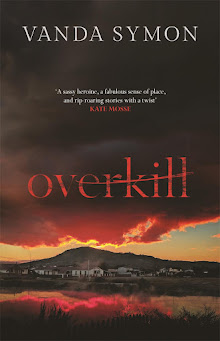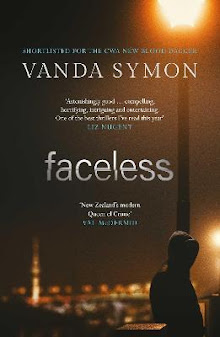Pavlovas were birthday and Christmas treats, and I have fond memories of lining up in the kitchen to watch mum's old Kenwood mixer do its thing, and that wonderful smell. No, not the sweet smell of the sugar and egg whites and vinegar, I'm talking about the smell of the hot engine oil from the old Kenwood. It flicked out random spatters of it that would occasionally land as a black fleck on the glossy pink surface of the beating meringue. It didn't seem to make any difference to the end product, in fact, perhaps it was the key secret ingredient that made Mum's pav's such a hit.
My other fond memory is the Christmas tradition, started by one of my brothers, of seeing who was first up on boxing day to have left over pavlova for breakfast. (That was assuming there was any left after the Christmas day gluttony). Mum didn't seem to mind, after all, a hearty breakfast is essential, according to the dietitians.
All this talk of Pavlovas, besides making me salivate, leads me on to the second book I reviewed on Dunedin Diary last week. Here's my notes.
The Pavlova Story by Helen Leach.

If ever a dessert begged a book, the pavlova is it, and Helen was the one with the knowledge to do it. The Pavlova Story is no light and fluffy read, but it isn't an academic tome. There is a lot of detail, but I think the author has found the right balance to do this story justice.
The book covers the fascinating history of the development of the pavlova, or pavlovas, there were three variants.
One of the delightful side effects of researching it are the stories of the social history of recipes and recipe books, particularly the local fund raising cook books. As a reader, I found this side of things fascinating. I always thought a recipe was a recipe, but this book shows how they evolve through time as a result of individual experimentation and social setting. The section on the effects of the war was particularly interesting. It was also great to see that home cooks ruled and set the trends in culinary design, more so than restaurant chefs and food scientists.
I found this a very interesting book to read from the standpoint of someone interested in food, and also interested in social history. It contains the recipes for the main pavlova variants mentioned, although, and I know I'm biased, I still think my Nana's is the best.









3 comments:
Hi Vanda,
I heard the radio interview with Helen and most entertaining it was. The research definitely seems the fun part - the uncovering of a social history of cook books and recipes spreading like a virus.
The pavlova - a sickly concoction if ever there was one - was force fed to me when I came to New Zealand:
"You must have some pavlova. It is our national dish."
Give me a lump of chocolate any day.
yours etc.,
Ungrateful wretch from Northern Ireland
Dear Ungrateful Wretch,
Think of it as character building, having to endure our beautifully sickly iconic desert. It will grow on you, don't you worry. If do you find yourself in a social situation where you have to consume it to be polite to the host, drown it with fruit salad, and accompany it with a good bitter beer.
oh that smell of kenwood engine oil, and the sound - the grunching noisy-ness of the beaters and engine whirring away, and the cooks and family shouting above it. We still have one - but the noise has got to me, the original wooden gears have been replaced by a metal one and now ours could possibly be heard past our boundary. I always look for little bits written by HL in the listener, she used to do a bit - but not so much now.
Post a Comment